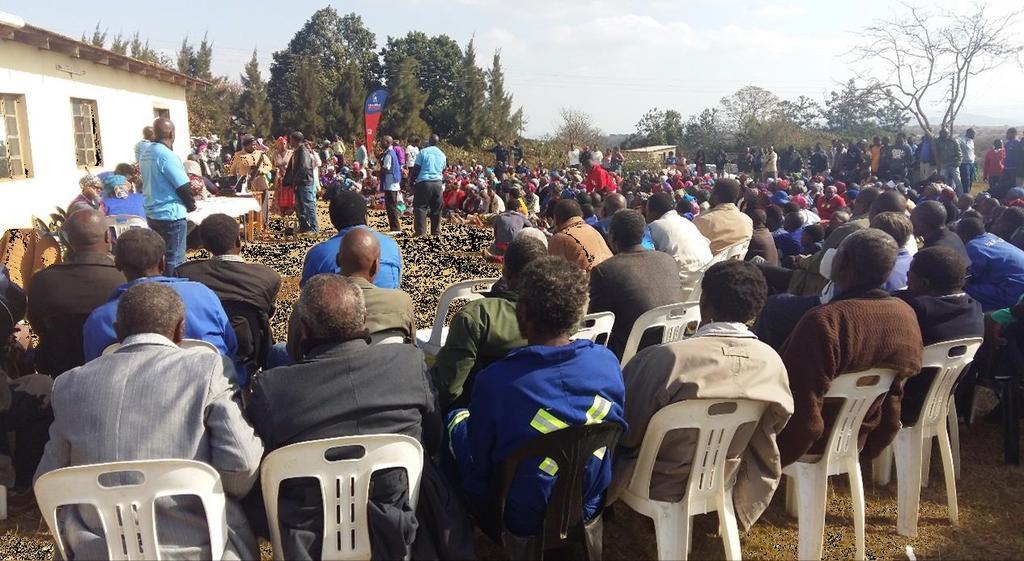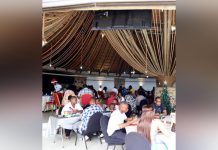Africa-Press – Eswatini. Taking stock of the events of the past weekend, viz the primary elections, I found it fitting for me to delve into organisational behaviour. Allow me to prefrace my thoughts by congratulating the Elections and Boundaries Commission (EBC) on a job well executed.
The primary elections were executed with relative efficiency, albeit the storm that wreacked havoc in the country on the eve of the elections. My opinion is premised on the commentary that we are seeing on the dailies post the elections. Striking on the commentary is the fact that most of the former Members of Parliament (MPs), who lost the race, site very irrelevant reasons, as most of them feel their constituencies did not value the developmental efforts they embarked on during their tenure. This is mind boggling since the roles and duties of an MP do not border on development, those are the functions of bucopho. MPs are legislators, their focus should be on enacting laws that will enable development and improve the lives of the people of Eswatini.
Organisational structure
Analysis of the sentiments on the news shows that MPs do not understand their role, and this could be a two-way problem. It could be that the EBC is not vigorous enough and the orientation programme in Parliament is deficient. This would mean that there is need to improve on voter education and also on political education for the different cadres who assume political office. I refer to this as organisational structuring, because I am wondering how the constituencies are governed. I contend that this conception presents a major governance issue.
If people are not clear about their roles, there is a tendency to overstep and this could be very challenging for the different cadres in their execution. This affects efficiency in delivery and hinders clear and effective service delivery to the people. Service delivery should not be electioneered and the development process should not be electioneered. The people’s access to clean water should not be held at ransom by the election process. Water projects, electrification, roadworks etc should not be withheld for execution towards the election year as one seeks to manipulate the electorate utilising State funds. The development process should be perpetual.
Charitable work
It is commendable that MPs undertake charity work in their constituencies, utilising their own funds. I was taken aback when I learnt that legislators utilise their own funds for community projects, or even share their salary with their constituencies. I must urge aspiring MPs not to undertake community projects utilising their salaries. A salary is payment for labour services provided. If an individual who earns the salary sees it fit to engage in charitable works, it should be without expecting anything in return. As proclaimed in the gospel according to Matthew; “But when you give to the needy, do not let your left hand know what your right hand is doing, so that your giving may be in secret. And your Father who sees in secret will reward you,” Matthew 6: 3-4.
Acts of charity and community building are but civic duties that all community members hold and should not be used to buy the vote. In my view, this is tantamount to exploiting the people’s poverty and needs to fulfill one’s political ambitions, a very cruel form of inhumane exploitation. It creates room and scope for moral hazards on the side of the legislator. It creates an incentive for legislators to utilise State funds as leverage or not to advocate for funds that will benefit communities directly until late into their term when it will help them serve their political ambitions. Legislators wield so much power that can be utilised to guide technocrats on areas of potential investments of the public funds, they are not doing their duty in influencing resource allocation in the country.
Resource allocation
The national budget is passed through an act of Parliament; legislators give it an ‘ayyyy’ and it is proclaimed that the ‘ayyys have it’. If the same legislators feel the need to utilise their own funds to deal with community problems, while they have an option to give the budget a ‘naaay’, then they are not doing justice to themselves. Legislators have the power to channel resources for poverty allocation and influence the outcome of public spending, rather than spending their own money and expect a vote in return. If there is an observed gap in high school education, for example, the right course of action for a legislator is to push laws that will make high school attainable for all, and not pay the fees with their own money. Paying with own money is not sustainable, what happens if the efforts to buy the vote fail? Who will continue paying the fees? This is a huge injustice to the electorate and the entire population of this kingdom of ours, can our MPs do better please.
Do better
Enacting policies that will alleviate the plight of the people is what is required from legislators. I call on aspiring MPs to promise to do better, not charity but legislation.
Source: times
For More News And Analysis About Eswatini Follow Africa-Press







